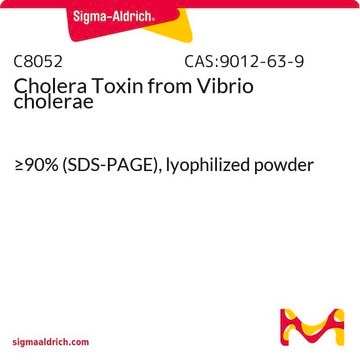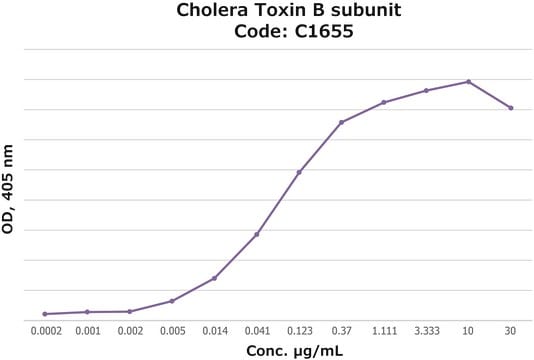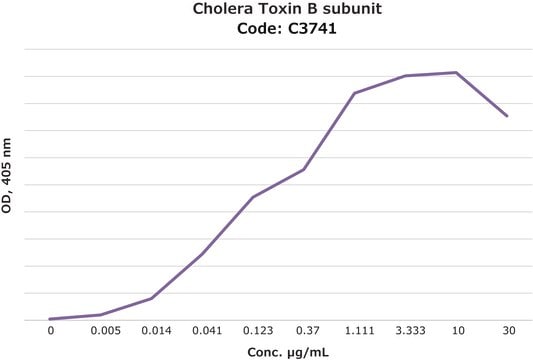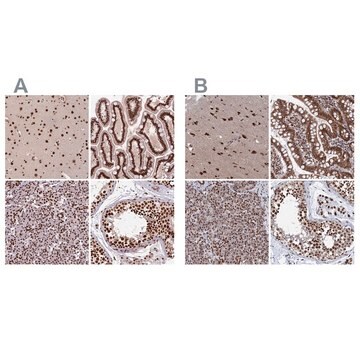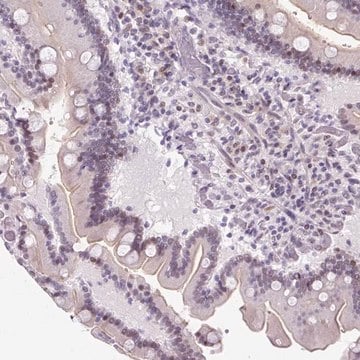C9903
Cholera Toxin B subunit
≥95% (SDS-PAGE), lyophilized powder, enterotoxin
Synonym(s):
CTB
About This Item
Recommended Products
product name
Cholera Toxin B subunit, ≥95% (SDS-PAGE), lyophilized powder
Quality Level
Assay
≥95% (SDS-PAGE)
form
lyophilized powder
mol wt
~12 kDa
composition
Protein, ~5% Lowry
impurities
≤0.5% Cholera toxin A subunit (SDS-PAGE)
solubility
H2O: 10 mg/mL
storage temp.
2-8°C
SMILES string
CCOc1ccccc1C(=O)Nc2ccc(Cl)c(c2)C(F)(F)F
InChI
1S/C16H13ClF3NO2/c1-2-23-14-6-4-3-5-11(14)15(22)21-10-7-8-13(17)12(9-10)16(18,19)20/h3-9H,2H2,1H3,(H,21,22)
InChI key
YDXZSNHARVUYNM-UHFFFAOYSA-N
Looking for similar products? Visit Product Comparison Guide
General description
Application
- for macrophage stimulation and i.p. injection in a study to determine the endotoxin sensitivity of Caspase-4.
- in transganglionic and retrograde tract-tracing method combined with dual-immunofluorescence histochemistry of adult rat Vmes neuron cells.
Biochem/physiol Actions
Features and Benefits
Packaging
Physical form
Reconstitution
Analysis Note
Signal Word
Warning
Hazard Statements
Precautionary Statements
Hazard Classifications
Acute Tox. 4 Dermal - Acute Tox. 4 Inhalation - Aquatic Chronic 3
Storage Class Code
11 - Combustible Solids
WGK
WGK 3
Flash Point(F)
Not applicable
Flash Point(C)
Not applicable
Certificates of Analysis (COA)
Search for Certificates of Analysis (COA) by entering the products Lot/Batch Number. Lot and Batch Numbers can be found on a product’s label following the words ‘Lot’ or ‘Batch’.
Already Own This Product?
Find documentation for the products that you have recently purchased in the Document Library.
Customers Also Viewed
Articles
Cyclic nucleotides like cAMP modulate cell function via PKA activation and ion channels.
Cyclic nucleotides like cAMP modulate cell function via PKA activation and ion channels.
Cyclic nucleotides like cAMP modulate cell function via PKA activation and ion channels.
Cyclic nucleotides like cAMP modulate cell function via PKA activation and ion channels.
Our team of scientists has experience in all areas of research including Life Science, Material Science, Chemical Synthesis, Chromatography, Analytical and many others.
Contact Technical Service